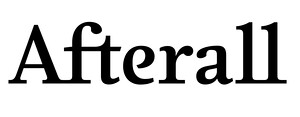Looking at the work of four artists, designers and writers working out of Kinshasa today
May 13, 2022, 11am
Thornhaugh Street, Russell Square
University of London
London WC1H 0XG
United Kingdom
Location: SOAS Brunei Gallery Lecture Theatre or online via Zoom link
Language: French with English subtitles for pre-recorded talks and simultaneous translation for the live sessions
“From a ‘reservoir of miseries,’ a euphoric and optimistic rhetoric has emerged, the future now being African, the continent being set to soon overtake China and the other BRICS as a new global creative and economic force redrawing the picture of the world.” —Felwine Sarr on the recent changes in the narratives around the African continent in Afrotopia (2016).
The Democratic Republic of the Congo (DRC) is without a doubt one of the main agents in this process, its capital, Kinshasa, being projected to reach a population of 83 million inhabitants by 2100. The DRC, with the largest coltan and cobalt reserves in the world is the centre in the global dynamics of extractive capitalism. Beyond fascination or catastrophism, this online symposium presents four voices, looking at the work of artists, designers and writers working today out of Kinshasa. These talks will present various positions from the fields of contemporary art, fashion and writing, to gauge the pulse of artistic production in the African city and explore the ways artists and designers address the necessity of articulating new local imaginaries in the face of accelerated technological and economic changes.
Talks
Prisca Tankwey: “Boundaries Between the Sape and Performance Art”
This presentation questions the Sape in relation to notions of identity, profile and belonging to classical categories of artistic practices. Too close to performance art, in plastic and conceptual terms, the discipline of the Sape begs a definition or the establishment of new boundaries. To do so, this talk will discuss various festivals organised in Kinshasa—“Sapesur scène” organised by the SADO collective; “Kinetelemi’telemi” organised by the FARATA Collective—with the view to reconsider operations of categorisation and nomination, as well as to thwart Western hierarchisations of the arts.
Cedrick Nzolo: “The mvuata-mable”
A look at the soul of Sape. Between art of living, seduction and technique of being. The mvuata-mable is drawn from the CDA (Congo Design Arts) Project which brings together three areas of research and expressiveness: textile and furniture design, fashion and architecture. Essentially dedicated to the universe of fashion, it has been particularly explored, questioned, and it inspired by the soul of the Sape, while evoking the contemporary character of sartorial creation.
Sinzo Aanza: “On the Improbable Memorial and Other Projects”
The objects and ideas that compose the fragments of the Improbable memorial create a possible space for the existence of victims of the mineral exploitation systems and outline the beginning of a reparation of the precarious world of the living and the ignored world of the dead. This initiative comes from a personal, intimate quest that unfolds in the space left void by the lack of official recognition of the victims by the State. However, as the title suggests, this memorial remains improbable given the current state of society, because the denial of History and memory covers and drowns everything. This talk will present how the Improbable Memorial explores Congolese people as the direct and indirect victims of the worldwide spread of mobile phones, which are made with many materials mined in Congo and whose ubiquitous and indispensable character extends the colonial exploitation of resources and people into the present time.
Ribio Nzeza: “Infectious Image Viral Content in the RDC”
This talk will explore how and why digital content is shared and moved into circulation in the Democratic Republic of Congo. It describes how visual genres such as print cartoons and popular painting now overlap with digital viral videos and memes and highlights the potential for postcolonial political critique offered by online content. This discussion of online practices is informed by the spiritual cosmologies and local conceptions of virality gleaned from extensive in-person interviews. Specifically, this talk addresses some of the biological metaphors people evoke to express their perceived vulnerability or exposure to visual online content.



